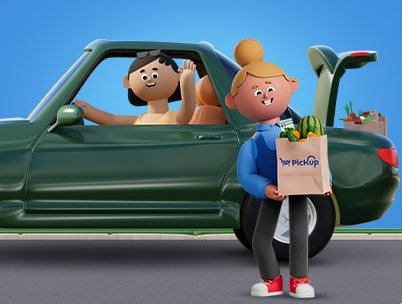With a history dating back to 1883, Kroger is a supermarket chain that has evolved from a small shop in Cincinnati to one of the nation’s largest retail companies, with a presence in 30 states. Known for its wide variety of products, from fresh groceries to household items, Kroger has positioned itself as an industry leader.
In the following lines, we will discover who is the CEO of Kroger, as well as who owns Kroger. In addition, we will explore fascinating facts about the corporate structure, its business model, and the key factors that have contributed to its success over the years. Without a doubt, Kroger has a story that deserves to be told.
Table of Contents
Who Owns Kroger?
Today, Kroger (The Kroger Company) is a public company listed on the New York Stock Exchange (NYSE) under the symbol KR. Its public structure allows individual and institutional investors to purchase shares and participate in its financial growth.
As an independent company, Kroger does not belong to a corporate parent, as it operates autonomously. However, it emphasizes its diversification strategy by owning and operating multiple subsidiary brands, including Fred Meyer, Ralphs and Harris Teeter. In addition, it manages a wide range of private label brands, including everyday products, which are very popular with its consumers.
Kroger’s major shareholders include large investment firms such as Vanguard Group and BlackRock, which own significant percentages of the company due to its strategy of investing in large-cap companies. This reflects the confidence of major financial players in Kroger’s performance and long-term prospects.
The CEO of Kroger
The current CEO of Kroger is W. Rodney McMullen. He has been with the company since 1978, when he started as a part-time employee in a warehouse in Lexington, Kentucky. Throughout his career, he has held multiple key positions within Kroger, including the roles of vice president of planning, chief financial officer and president of operations.
McMullen assumed the role of CEO in 2014. Under his leadership, Kroger has driven strategic initiatives such as the expansion of its digital ecosystem and commitment to sustainability. In addition, he oversaw the transformation of the shopping experience and strengthened the company’s own-brand offerings, helping the company serve more than 11 million customers daily in 2,800 physical and online shops.
The History and Organizational Structure of Kroger
The Kroger story began in 1883 when Barney Kroger founded his first shop in Cincinnati, Ohio, with an investment of $372. From its inception, Kroger revolutionized retailing by offering fresh produce, bakery and butcher under one roof—an innovative idea for its time. This business model allowed it to grow rapidly, operating more than 100 shops by 1908. Over time, Kroger has led major industry innovations, such as the introduction of electronic bar code scanners and loyalty programs.
Kroger is structured as a conglomerate that operates more than 2,700 supermarkets in 35 U.S. states under 28 different names, including Ralphs, Fry’s, Fred Meyer and Harris Teeter. In addition, it has subsidiaries that include jewelry stores, convenience stores and food manufacturing plants. Its own brands include Simple Truth and Private Selection, known for their focus on organic and quality products.
The company continues to innovate by integrating services such as online shopping, home delivery and in-store pickup. Its focus on sustainability is reflected in its Zero Hunger | Zero Waste program, which seeks to eliminate hunger and reduce food waste in its communities. With more than 400,000 employees, Kroger continues to adapt to market demands and compete with giants such as Walmart and Amazon.
Interesting Facts About Kroger
Barney Kroger founded Kroger in 1883 with just $372, laying the foundation for one of the world’s foremost retail giants. Since its inception, Kroger has been known for its innovation, pioneering the bundling of staples such as bakery, butchers and fresh produce in one place, revolutionizing the shopping experience.
In 1999, Kroger consolidated its leadership position by merging with Fred Meyer, Inc. in a $13 billion deal, expanding its presence and diversifying its offerings. Today, Kroger operates under multiple well-known brands, including Ralphs, Dillons, Smith’s, and Harris Teeter, among others.
Interestingly, Kroger is the world’s largest florist, selling millions of floral arrangements annually. It also leads significant philanthropic initiatives.
With an ongoing commitment to sustainability and community, Kroger not only redefines retail, but also makes a positive impact on the lives of millions of people.
Conclusion
Kroger is one of the most influential supermarket chains in the United States, with a history dating back to 1883. Since its inception, it has been known for setting the benchmark in the shopping experience for its customers. Today, Kroger operates in 30 states under more than 28 different names and manages 2,800 physical and online shops, serving more than 11 million customers daily.
As a public company listed on the New York Stock Exchange, it has major investors such as Vanguard Group and BlackRock. Led by W. Rodney McMullen since 2014, Kroger has driven strategic initiatives, such as the expansion of its digital services, technological innovation and its commitment to sustainability through the Zero Hunger | Zero Waste program. This project not only reduces food waste, but also supports local food banks.
Kroger is a pioneer in private brands such as Simple Truth and Private Selection, and continues to compete with giants such as Walmart and Amazon through its ability to adapt. With a legacy of innovation and social commitment, Kroger continues to make a positive impact on its communities.
FAQ
Who founded Kroger, and how did the company start?
Kroger was founded in 1883 by Barney Kroger in Cincinnati, Ohio, with an initial investment of $372. From its inception, Barney Kroger revolutionized the shopping experience by combining fresh produce, bakery and butchery in one location, establishing the model we know today as a supermarket.
Who is the CEO of Kroger, and what has he achieved during his leadership?
The current CEO of Kroger is W. Rodney McMullen, who joined the company in 1978 as a part-time employee in a warehouse. Since taking over as CEO in 2014, McMullen has led key initiatives such as the expansion of the digital ecosystem, the integration of omnichannel shopping options, and the Zero Hunger | Zero Waste sustainability program.
How is Kroger structured, and what are its main subsidiary brands?
Kroger operates as a conglomerate that manages more than 2,800 supermarkets in 35 US states under 28 different names, including Ralphs, Fred Meyer, Harris Teeter and Smith’s. In addition, Kroger produces popular private brands such as Simple Truth and Private Selection, which offer high-quality products at competitive prices.

